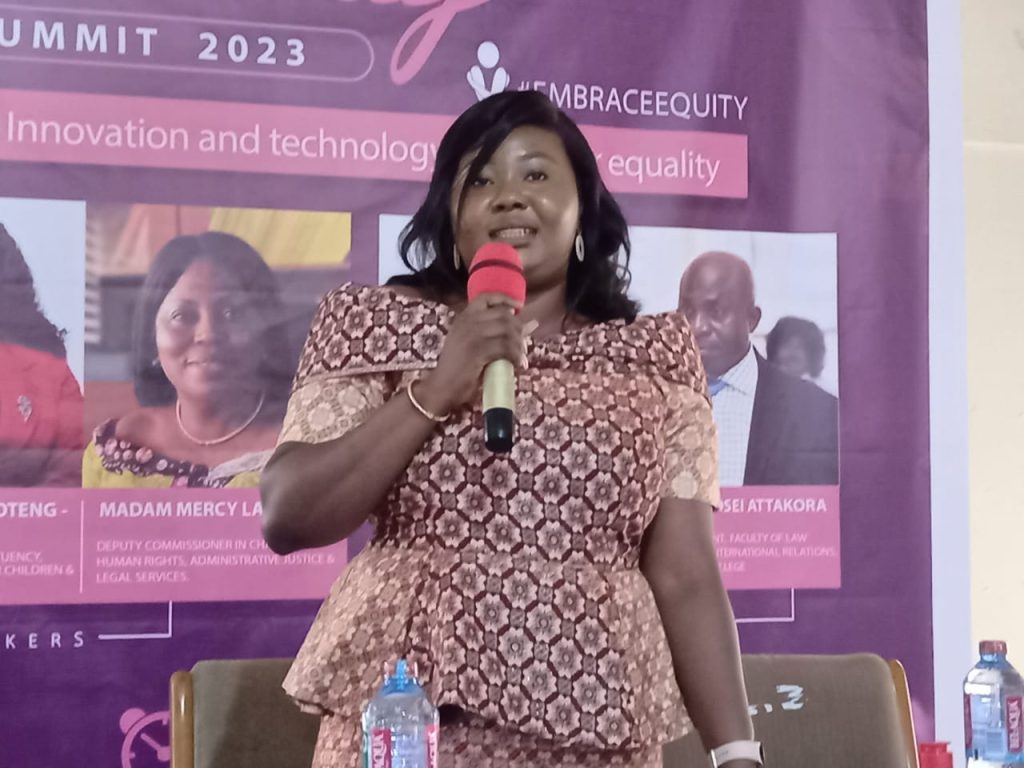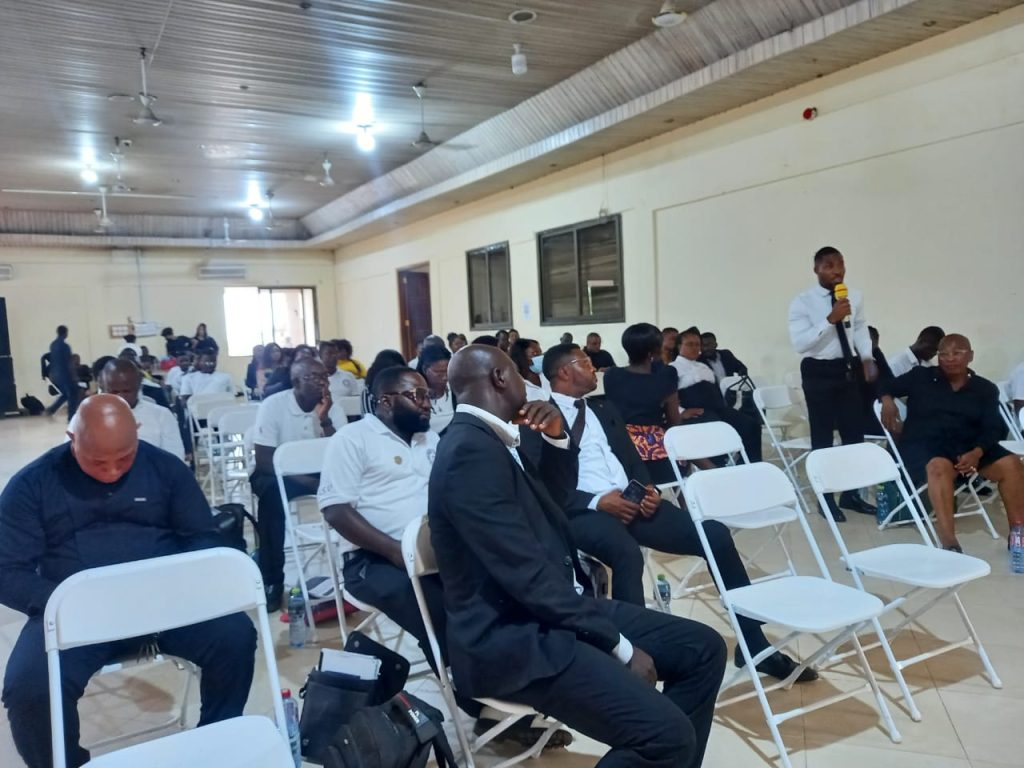By Joyce Danso
Accra, March 11, GNA – A deputy Minister of Gender, Children and Social Protection, has asked Ghanaians to lend more support to government to break “digital poverty” confronting women and girls.
Madam Francisca Oteng Mensah, who is also the Member of Parliament for Kwabre East, said she could see a new form of poverty (Digital) confronting the world, adding same was growing and intensely gendered.
“I see a new form of poverty confronting the world. That is digital poverty, which is growing and intensely gendered. The digital age has generated unparalleled opportunities for empowerment of women and girls. However, women and girls remained lessened in this digital space.
“They are less likely to use digital services or enter tech-related careers, and significantly more likely to face gender-based violence through ICT.”
The Deputy Minister was speaking at Kings University College’s celebration of this year’s International Women’s Day at Aplaku in the Greater Accra Region.

The celebration was held by the University’s Faculty of Law, Governance and International Relations.
It was under the theme: “Digital: Innovation and Technology for Gender Equality”.
The Deputy Minister noted that throughout history, the central role of women in society had ensured stability, progress, and long-term development of nations, adding the celebration of women was an indication that the world had come to accept the need to acknowledge the impact women made in many areas of development.
The Deputy Minister said that digital technology, with no doubt, had presented an opportunity to narrow gender gaps by enhancing access to welfare, financial, and information services.
She was elated that through digital technology, women could have their own bank accounts through mobile banking.
“Access to digitally transferred resources allows for greater, privacy, security and help overcome prevalent social norms.”
She, therefore, appealed to all and sundry to increased advocacy not only for gender equality but more importantly gender equity.
“While equality seeks to provide each individual or group of people with the same resources or opportunities, equity recognises each person’s peculiar circumstances and allocates the exact resources and opportunities needed to attain an equal outcome.”
Madam Oteng Mensah said, “we need to understand the unique needs of our women and girls, come up with innovative technologies to satisfy these needs in a way that puts them par with their male counterpart”.
The MP noted that though digital technology had contributed remarkably to socioeconomic development, but there were higher rates of sexual discrimination.
“Domestic violence reports have also increased in many countries and this violence may be physical, sexual, verbal psychological or economic abuse, happing in homes, streets and increasingly online.”
Regrettably, she said women and girls were more likely to be targets of online violence and that violence worsened during the COVID -19 pandemic.
According to her online sexual exploitation and abuse of children had reached crisis level, with girls featuring in most online and abuse materials.

Madam Oteng Mensah said there was “ an urgent need to address this online abuse and to turn the tables and harness the power of technology as a force for good and also for gender based violence prevention and response.
“We need to close the digital gender gap and ensure technology is safe and accessible to women and girls. There is the need for effective solutions targeted at both barriers which force women out of STEM jobs.”
She said “ without equal representation in those fields (STEM), women participation in shaping technology, research and investment and policy will remain critically limited.”
Professor H. H Mensah, Dean of the Faculty of Law, Governance, and International Relations of the University, said women were nation builders hence the need to expand their access to education.
Professor Mensah appealed to government to roll out programmes that would encourage women to take leadership in the public sphere.
GNA